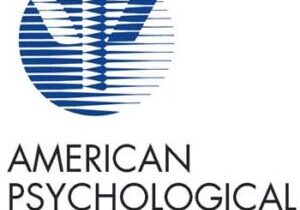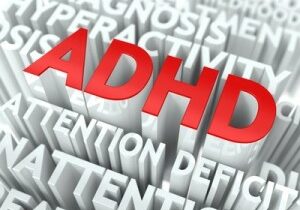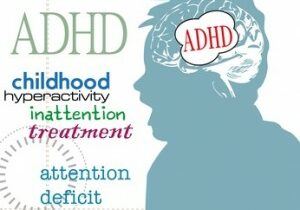"People with ADHD are constantly coming up with new ideas and new ways of doing things. They have tremendous levels of creativity, artistic ability. They are great world-class problem-solvers." - William Dodson, M.D., ADDitude Magazine
Famous People with ADHD
- Will Smith: The renowned actor and producer has revealed that he has ADHD and believes it contributed to his creativity and drive.
- Michael Phelps: The most decorated Olympian of all time, swimmer Michael Phelps, has been open about his ADHD diagnosis and has advocated for mental health awareness.
- Justin Timberlake: The singer, songwriter, and actor has shared his experiences with ADHD and how he manages it.
- Simone Biles: The celebrated Olympic gymnast, Simone Biles, has discussed her ADHD diagnosis and the challenges she's faced in her gymnastics career.
- Richard Branson: The billionaire entrepreneur and founder of Virgin Group has talked about how his ADHD has influenced his business ventures and creativity.
- Sir Richard Branson: The British entrepreneur and founder of Virgin Group has openly discussed his ADHD and its impact on his entrepreneurial journey.
- Jim Carrey: The famous comedian and actor Jim Carrey has spoken about his ADHD diagnosis and how he manages his symptoms.
- Zooey Deschanel: The actress and singer has revealed her ADHD diagnosis and how it has influenced her career and creativity.
- Adam Levine: The lead singer of Maroon 5 and a judge on "The Voice" has discussed his experience with ADHD.

Symptoms of ADHD
While not everyone with Attention Deficit Hyperactivity Disorder will experience the same symptoms of ADHD, they can include:
Inattentive Symptoms:
- Having trouble paying attention for a long time.
- Making careless mistakes.
- Struggling to follow instructions.
- Finding it hard to organize tasks.
- Avoiding tasks that need a lot of focus.
- Frequently losing things.
- Getting easily distracted.
- Forgetting things often.
To get a diagnosis of ADHD, these symptoms should last for at least six months and cause problems in different parts of your life, like at home, school, or work.
For the original source, you can visit the following URL: DSM-5 ADHD Criteria.
Why Get an ADHD Evaluation in Broward County, Plantation FL?
An ADHD evaluation can be incredibly beneficial for children in school in several ways:
- Accurate Diagnosis: First and foremost, an ADHD evaluation helps provide a clear and accurate diagnosis. This means that if a child is struggling due to ADHD, they can receive the appropriate support and accommodations.
- Tailored Interventions: With an ADHD diagnosis, educators and parents can create customized strategies and interventions to address the child's specific needs. This might involve changes to the classroom environment, teaching methods, or the introduction of assistive technologies.
- Medication Management: For some children with ADHD, medication can be an effective part of their treatment plan. An evaluation helps determine if medication is suitable and allows for careful monitoring of its effects.
- Individualized Education Plans (IEPs) or 504 Plans: Many children with ADHD qualify for special education services through an IEP or a 504 Plan. These plans outline specific accommodations and support that the child needs to succeed academically, such as extended time on tests or a quiet space for tasks.
- Teacher Awareness: An ADHD evaluation helps teachers understand the child's challenges and strengths. This knowledge enables educators to adapt their teaching methods, offer additional support, and provide positive reinforcement when necessary.
- Improved Focus and Learning: By addressing ADHD-related issues, children can often improve their ability to focus, concentrate, and learn. This can lead to better academic performance and increased confidence in their abilities.
- Emotional and Behavioral Support: ADHD evaluations also consider emotional and behavioral aspects. Addressing these can help children manage their emotions, reduce frustration, and improve their social interactions, creating a more positive school experience.
- Parental Guidance: Parents receive guidance on how to support their child effectively, both at home and in school. They can learn strategies to help with homework, time management, and communication.
In essence, an ADHD evaluation serves as the first step in creating a comprehensive plan to support the child's academic success. It ensures that their unique needs are recognized and met, fostering a positive and inclusive learning environment.
Differential Diagnosis of ADHD by a multi-specialty team of expert ADHD professionals in Plantation, FL
Several conditions can mimic the symptoms of ADHD (Attention-Deficit/Hyperactivity Disorder). It's essential to consider these conditions when assessing someone with ADHD-like symptoms, as a proper diagnosis is crucial for effective treatment. Some conditions that can resemble ADHD symptoms include:


- Anxiety Disorders: Generalized anxiety disorder and social anxiety disorder can lead to difficulties in concentration, restlessness, and distractibility, which may be mistaken for ADHD.
- Depression: Symptoms of depression, such as low energy, difficulty concentrating, and a lack of motivation, can overlap with ADHD symptoms.
- Learning Disabilities: Conditions like dyslexia, dyscalculia, or auditory processing disorder can impact academic performance and result in inattention or underachievement.
- Sensory Processing Disorder (SPD): SPD can cause sensory sensitivities or overstimulation, leading to behaviors similar to hyperactivity or distractibility.
- Sleep Disorders: Conditions like sleep apnea, insomnia, or restless leg syndrome can result in daytime fatigue and difficulty focusing.
- Substance Abuse: The use of certain substances, including drugs or alcohol, can lead to attention and impulse control problems that mimic ADHD symptoms.
- Medical Conditions: Certain medical conditions like thyroid disorders, anemia, or neurological disorders may have symptoms that overlap with ADHD.
- Autism Spectrum Disorder (ASD): Some individuals with ASD may exhibit behaviors similar to ADHD, such as difficulties with social interaction and communication.
- Bipolar Disorder: In the manic phase of bipolar disorder, individuals may experience increased energy, impulsivity, and reduced need for sleep, which can mimic hyperactivity.
- Childhood Trauma: Traumatic experiences in childhood can result in symptoms resembling ADHD, including difficulty concentrating and emotional dysregulation.
It's important to note that a qualified healthcare professional, such as a psychiatrist or clinical psychologist, should conduct a thorough evaluation to rule out these conditions and provide an accurate diagnosis. Misdiagnosis can lead to inappropriate treatment, so a comprehensive assessment is crucial for effective care.









